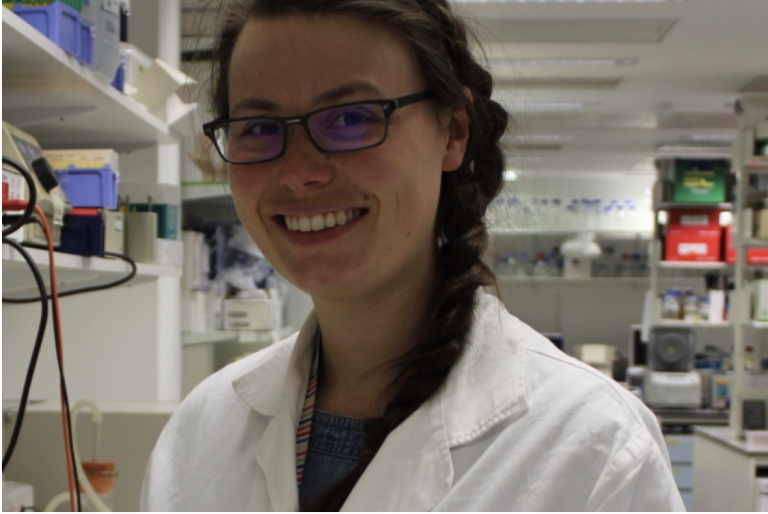Spotlight: Merry Wilkinson
10 February 2023
We speak to Merry Wilkinson, an Early Career Researcher at the UCL Great Ormond Street Institute of Child Health. In this interview, Merry shares what inspired her to get into science and how her research has uncovered potential for new treatments.

What inspired you to get into the field of science?
My Mum was the first one in her family to go to University, growing up, she was always proud of having studied Zoology at university and liked to weave this into conversation, whether reciting Latin names for weird and wonderful insects or talking about her project in nematodes. Even though my Mum did not pursue a career in science, the retelling of her experiences was how I first learned about scientific research. In parallel to this, my Dad’s family come from a lineage of doctors and health care professionals, however, he did not follow this course but also studied Zoology. Through this background, I was encouraged from a young age to pursue sciences and medicine.
What’s been your career journey?
When I was at school, I found people to talk to about their experiences in science and medicine and asked them for career advice and help with applying to university. Work experience is an important requirement for all degree applications, and I was fortunate to be able to work with some very supportive people during the school holidays to get the experience I needed. I was successful in getting into medical school and really enjoyed the course, but it wasn’t right for me and I decided to change track and pursue medical research as a career path. I am extremely grateful that I had a very supportive and encouraging immunology lecturer at medical school who helped me get to where I am today.
What do you do now?
After medical school, I completed a degree in biomedical science whilst working as a research assistant. It was a tough year but definitely worth it. From then, I completed a PhD in immunology at UCL and have continued along the path of an early career researcher. My job involves lab research, designing new projects, writing papers for publication and supporting the group and lab I work in.
Who do you work with?
I work with amazing people from all over the world, who have got to where they are today through many different paths. Research incorporates many different roles and is not all lab based. The research I work on at the moment is investigating problems with the immune system in children that have rheumatic disease, where the immune system attacks itself and can cause a wide range of symptoms depending on the disease. You can read more about this research on the UCL GOS ICH website. Even though I am primarily a scientist, because my research is on patient samples, I am very privileged to work with patients and families to discuss and feedback my research.
What is your most exciting discovery or achievement?
My most exciting achievement in the last year is the publication of the research I have worked on during my early career fellowship. Science is rarely straight forward and what with COVID there were lots of hinderances along the way, but we got the news that it was published on Christmas eve which was a truly wonderful Christmas present.
What is the best thing about working in a lab?
The best thing about working in a lab is my group and the people surrounding me. Everyone brings their own experiences and ideas working as a team to really drive our science.
3 Top Tips for pursuing a career in science
- Find people to talk to
- There are so many different career paths in science, try and explore these as much as you can.
- Volunteer or get a part time job - it will be really beneficial for your application if you’re able to demonstrate transferable skills
Links
- Merry Wilkinson's IRIS profile
- Great Ormond Street Institute of Child Health
- Related Programme: Cell and Gene Therapy MSc
- Related programme: Personalised Medicine and Novel Therapies MSc
 Close
Close

